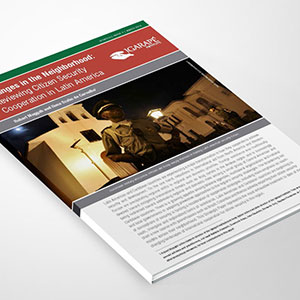Changes in the Neighborhood: Reviewing Citizen Security Cooperation in Latin America
Latin American and Caribbean countries are experiencing a major transformation in how they cooperate to achieve security and development. On the one hand, reductions in international aid from North America and Western Europe are precipitating regional shifts in regional and domestic priorities. Foreign assistance was traditionally devoted toward mitigating transnational threats such as drug cartels in the Andean region and is increasingly being redirected toward addressing regional and domestic risks among a small group of Central American and Caribbean countries. There is a growing appetite among bilateral agencies, multilateral organizations and national and local governments in adopting preventive approaches to the region’s security challenges. The broadening out of conceptions of security is forcing a recalibration of cooperation strategies, including more emphasis on southsouth, triangular and regionalized forms of assistance. Latin American and Caribbean countries are beginning to chart a new course with powerhouses such as Brazil, Colombia and Mexico actively exporting their citizen security models across their neighborhood. This Strategic Paper represents the most exhaustive treatment to date of the changing landscapes of international cooperation for citizen security in the region.
VIEW PDF



